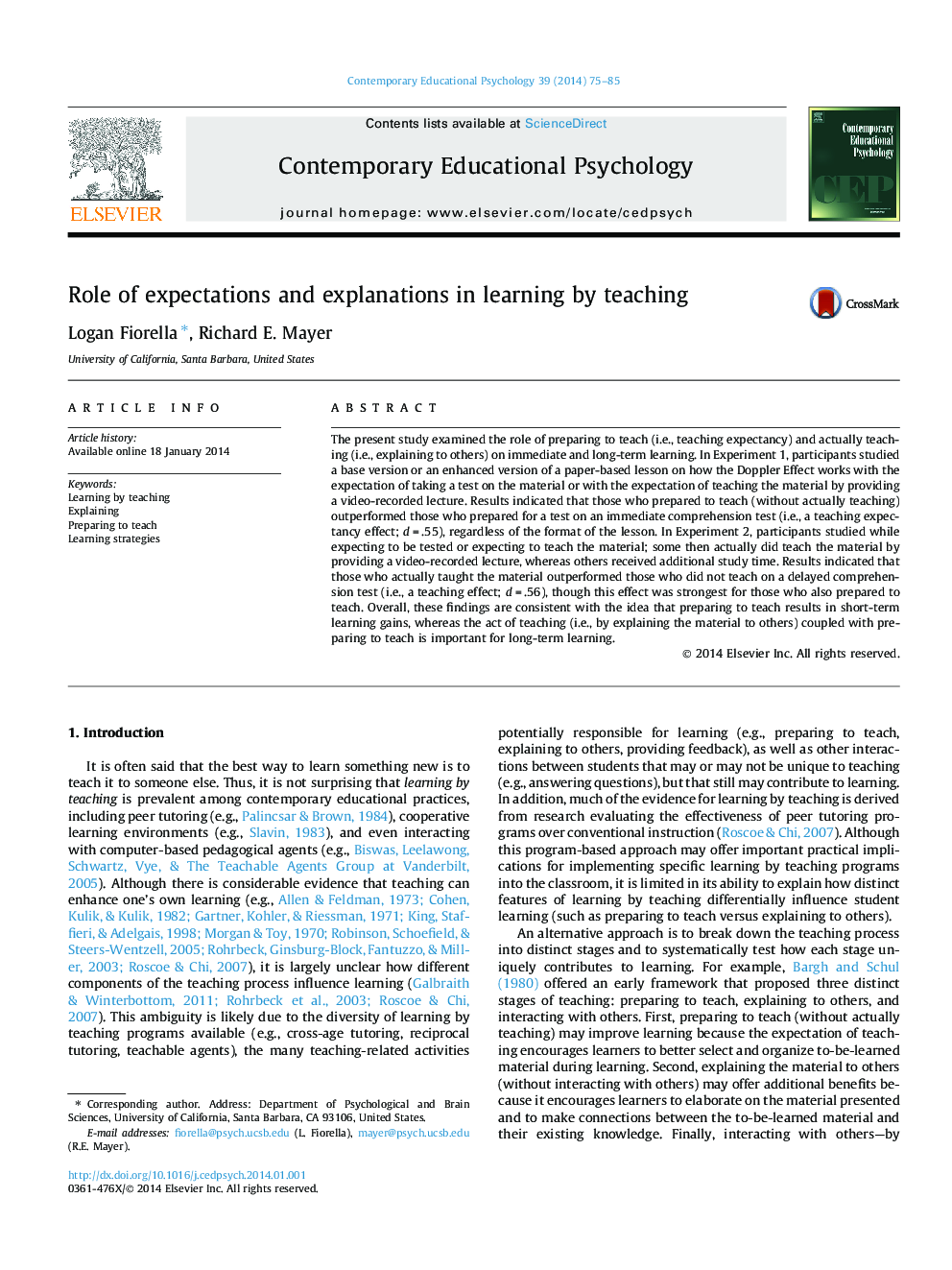| Article ID | Journal | Published Year | Pages | File Type |
|---|---|---|---|---|
| 352634 | Contemporary Educational Psychology | 2014 | 11 Pages |
•We tested the role of preparing to teach and actually teaching on learning.•There was a teaching expectancy effect for short-term learning.•Preparing to teach coupled with actually teaching led to greatest long-term learning.
The present study examined the role of preparing to teach (i.e., teaching expectancy) and actually teaching (i.e., explaining to others) on immediate and long-term learning. In Experiment 1, participants studied a base version or an enhanced version of a paper-based lesson on how the Doppler Effect works with the expectation of taking a test on the material or with the expectation of teaching the material by providing a video-recorded lecture. Results indicated that those who prepared to teach (without actually teaching) outperformed those who prepared for a test on an immediate comprehension test (i.e., a teaching expectancy effect; d = .55), regardless of the format of the lesson. In Experiment 2, participants studied while expecting to be tested or expecting to teach the material; some then actually did teach the material by providing a video-recorded lecture, whereas others received additional study time. Results indicated that those who actually taught the material outperformed those who did not teach on a delayed comprehension test (i.e., a teaching effect; d = .56), though this effect was strongest for those who also prepared to teach. Overall, these findings are consistent with the idea that preparing to teach results in short-term learning gains, whereas the act of teaching (i.e., by explaining the material to others) coupled with preparing to teach is important for long-term learning.
